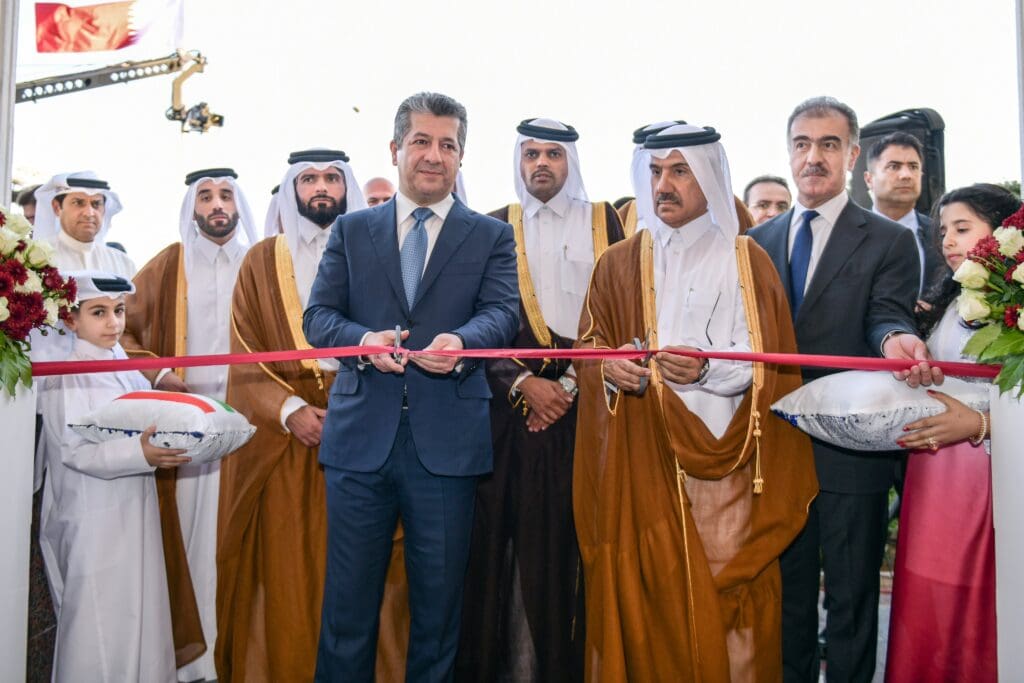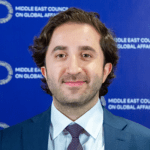Over the past year, Qatar and the Kurdistan Region of Iraq have ramped up their relations. Under Prime Minister Masrour Barzani, the Kurdistan Regional Government (KRG) has prioritized improved diplomatic and economic ties to the Gulf. That has included expanded trade with Doha, particularly in agriculture. Erbil and the Gulf states are also improving their relations in the energy sector, with a planned Kurdish pipeline network connected to the Turkish border. Qatar is likely to play a role in this project, which aims to unlock Kurdistan’s gas reserves, capitalize on Türkiye’s potential as a gas export hub, and harness Qatar’s status as a global Liquid Natural Gas (LNG) giant. Within the wider landscape, Qatar and the United Arab Emirates are both signatories to Development Road Project, a major infrastructure initiative that opens up alternative trade and supply routes across the region.
Qatar’s efforts to widen its footprint in Kurdistan, including opening a consulate in Erbil in May, could yield dividends on several fronts. But Doha is still adopting a relatively cautious approach. That is partly because of the volatile political climate in Iraq and the potential for renewed conflict. This concern is not entirely unfounded but may be overblown and misplaced in respect of the Kurdistan region. The KRG has a more stable political and security order compared to the rest of Iraq, and strong ties to the West and growing relations to China, which reflects Kurdistan’s long-standing capacity to balance its relations with the international community. Engaging with Kurdistan on this basis, with a long-term strategic outlook, will help mitigate potential challenges to Qatar’s wider security and economic interests in Iraq and allows Doha to harness Kurdistan to influence the wider Iraqi landscape.
Kurdistan as a Stable Partner
The Kurdistan region’s appeal stems, in part, from its stability relative to Baghdad. Indeed, the KRG has shrewdly balanced its foreign relations with rival governments like Iran and the U.S., and Türkiye and the UAE, as a mode of survival after its de-facto independence in 1991. It has also navigated important historical currents like the post-9/11 war on terror to position itself as a major ally in the global counter-terrorism effort, leveraging its relations with, and support from the U.S. to enhance its autonomy and prosperity.
Despite intra-Kurdish rivalries undermining the KRG’s once-outsized influence vis-à-vis Baghdad, there has been a general consensus in respect of the imperative of maintaining Kurdistan’s historic relations with external actors, and that includes maintaining the balancing act that has allowed the KRG to develop its ties to both the West and its immediate neighborhood, including countries such as Iran and Türkiye.
The KRG, under Prime Minister Barzani, has engaged the Gulf states in order to diversify Kurdistan’s economy and develop alternative markets for Kurdish companies and exporters. In the past, the GCC states had shown some aversion toward expanding ties with the KRG. Türkiye was arguably the only country in the Middle East to augment engagement with Erbil when Saddam Hussein was overthrown in 2003, and today it enjoys trade with the KRG amounting to around $5 billion dollars per year. The Gulf states focused their attention on the rest of Iraq. However, this entangled them in sectarian civil wars, and their relationship with the country was further complicated by the Arab Spring, the sectarian rule of the Dawa Party in Baghdad, and the emergence of ISIS.
Yet the picture has changed dramatically in recent years as the appetite for regional economic integration and de-escalation has opened up pathways for enhanced ties between Iraq and other countries. Qatar has ramped up and diversified its engagement, particularly over the past three years. In August 2023, Qatari conglomerate Estithmar Holding Group announced a string of investments in Iraq under a Memorandum of Understanding (MoU) signed during a visit to Iraq by Emir Tamim bin Hamad Al Thani. The deal included agreements with the Iraqi National Investment Commission worth $7 billion, covering real estate and tourism development, as well as hospital operations.
In April 2023, Qatari marine and logistics firm Milaha announced a new service to transport cargo between Umm Qasr in southern Iraq and the GCC countries. QatarEnergy also has a 25% stake in the $27 billion Gas Growth Integrated Project (GGIP), which covers gas, oil, water, and solar power in a consortium also including Iraq’s Basrah Oil Company and France’s TotalEnergies. Moreover, Qatar is active in the humanitarian arena; organizations such as the Qatar Red Crescent Society (QRSC) have a longstanding record of helping communities displaced during the war on ISIS.
The KRG has outlined aspirations to turn Kurdistan into a global gas exporter amid increased demand for fuel since the war in Ukraine began in 2022. This offers a valuable opportunity to Qatar, the world’s second-biggest LNG exporter, which can harness its expertise in LNG logistics. The imperative of developing Kurdistan’s gas reserves may also allow Qatar to harness and develop its relations with Türkiye, which sees Kurdish gas as vital to its long-term energy and security interests. Qatar can also play a key role by developing its existing relations with Shiite political actors through an expanded engagement with Erbil; such actors could undermine the development of Kurdish gas and will need to be engaged through a neutral third-party—such as Doha—to alleviate their concerns and develop a shared vision for the country’s energy sector.
Amplifying Doha’s Regional Influence
An increased Qatari footprint in Kurdistan could provide a foothold for amplifying Doha’s leverage in the rest of Iraq. Given Qatar’s deep relationship with Türkiye, this is not far-fetched. Ankara’s ties with the KRG have represented their own axis in Iraq and the region for several decades, which has been underscored by cooperation in the energy sector, including a historic 50-year agreement pipeline deal in 2013 that enabled Kurdistan to independently export oil, although this has come under pressure in recent years.
Türkiye has also drawn on its ties with the KRG to enhance its influence in Iraq and leverage that relationship in Syria. Both Türkiye and Qatar are helped by the fact that Erbil is close to Iraq’s Doha-aligned Arab Sunni political bloc, including Mohammed al-Halbousi and Khamis al-Khanjar, who have particularly good relations with the Kurdistan Democratic Party (KDP), Kurdistan’s ruling party. These actors will be crucial to ensuring Qatar’s engagement with Iraq, including its substantial investments and commitments in Baghdad and elsewhere, are both strategic and long-term, rather than becoming a string of costly, short-lived exercises.
In other words, improved relations between Qatar and the KRG give Doha strategic depth in Iraq, a market of around 45 million people that is expected to grow exponentially. For Erbil, improved relations with Doha build on its existing ties with the UAE, whose Crescent Petroleum has had a presence in Kurdistan since 2007 and last year signed three 20-year contracts to develop oil and natural gas fields in Iraq’s Basra and Diyala provinces.
Closer Doha-Erbil relations also present an opportunity to increase GCC investment in Kurdistan more generally, as the KRG diversifies its economy and builds on growth in non-oil sectors. For both governments, better relations will help crystallize and strengthen their respective foreign policies as regional economies integrate further.


